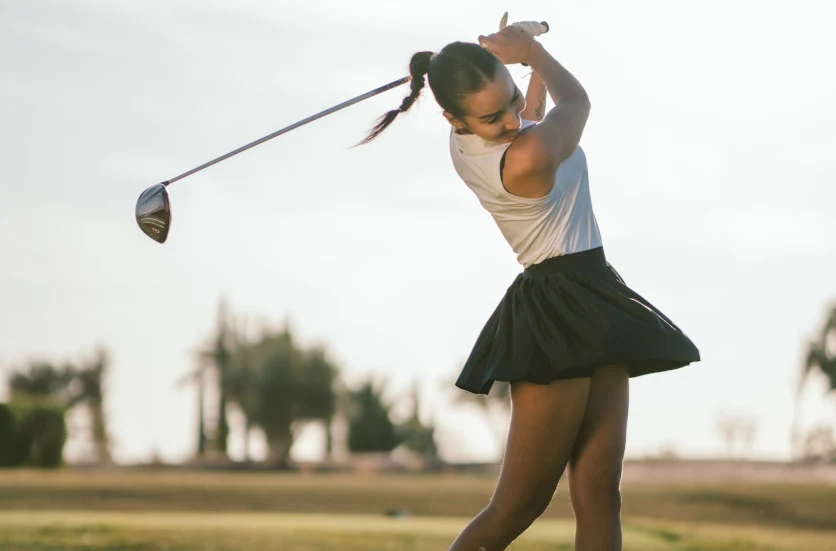
Improving Your Body Rotation in Golf
The key to improving body rotation in golf lies in regular practice and patience. By integrating the tips below into your training, you will develop a more effective rotation that will help to improve the power and accuracy of your shots.
Understand the importance of rotation
Body rotation in a golf swing allows generating power from the ground, through the body, up to the clubhead. Good rotation involves the whole body - feet, legs, hips, torso, and shoulders.
Adopt a stable posture
A solid base is essential for good rotation. Make sure your feet are shoulder-width apart, with a slight bend in the knees and a forward tilt of the torso from the hips. This posture helps you stay balanced throughout the swing.
Practice hip rotation
The hips play a major role in rotation and generating power. At the start of the swing, begin by rotating your hips back, ensuring they rotate around a stable central axis. At the moment of impact, your hips should already begin to open towards the target, allowing a smooth transition of power.
Use your shoulders
Shoulder rotation is also vital. They should turn fully during the backswing, with your back shoulder passing under your chin if possible. This creates a wide swing arc and a better opportunity to generate speed.
Maintain the connection between arms and body
Your arms should stay closely connected with your body throughout the rotation. This helps maintain control and direct the power generated by body rotation directly towards the ball.
Practice a smooth weight transfer
A good swing involves a weight transfer from the back foot to the front foot, synchronized with body rotation. Practice this movement to improve the fluidity and efficiency of your swing.
Work on your flexibility and strength
Core flexibility and strength are crucial for an effective rotation. Incorporate specific exercises, such as trunk twists with or without weights, to improve these aspects.
Film your swing
Using video can help you visualize and analyze your body rotation. Look for a smooth and continuous rotation without jerky movements.









